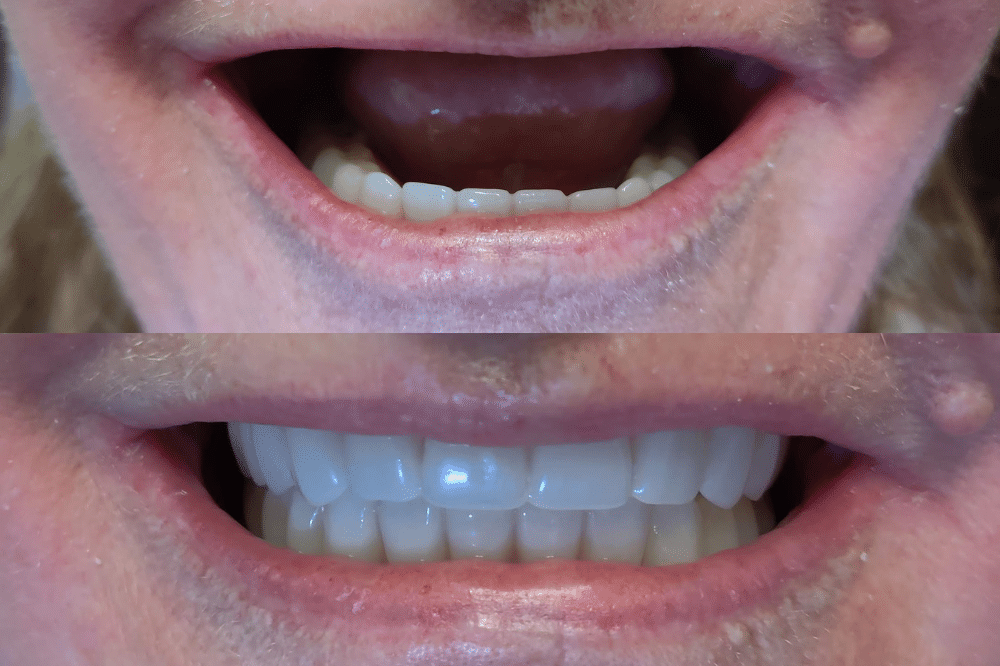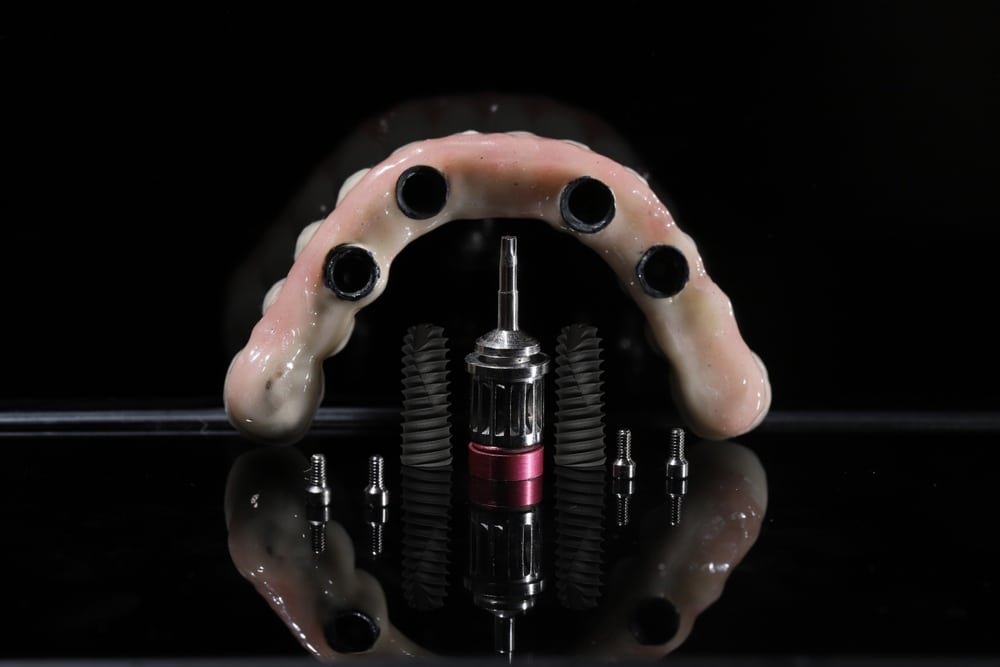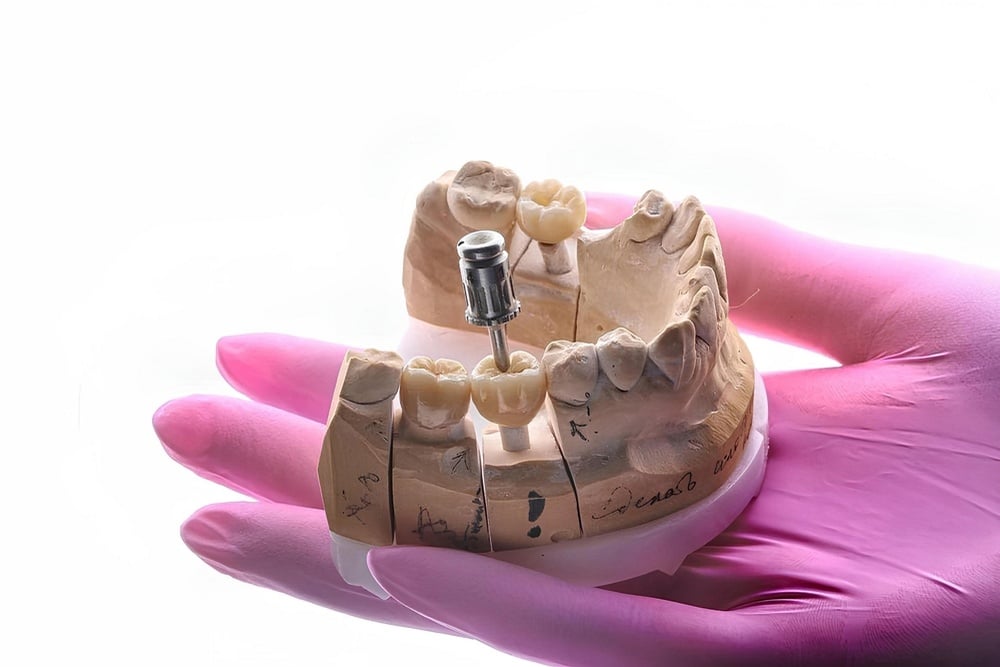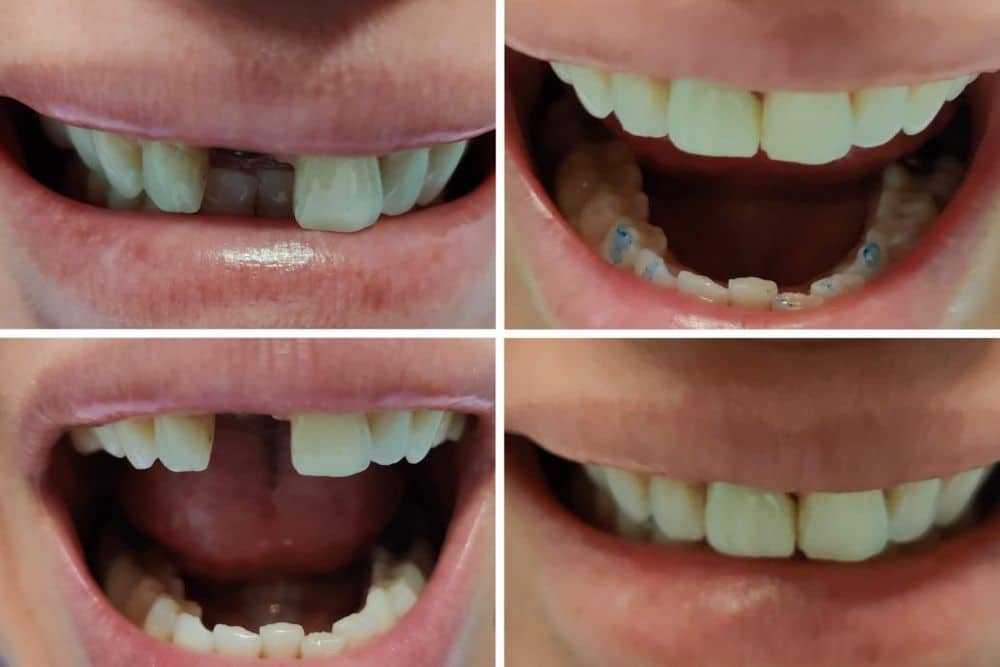Dentures and bridges are both dental prosthetics used to replace missing teeth. Dentures are removable, full or partial sets of false teeth that are held in place by suction or a special adhesive. Bridges, on the other hand, are permanent fixtures that are anchored to the remaining natural teeth or dental implants. Bridges are typically used to replace one or a few missing teeth, while dentures are used to replace an entire arch of missing teeth. Both dentures and bridges can improve the appearance and function of the teeth, but they have different advantages and disadvantages. It is important to consult with a dentist to determine which option is best for your individual needs.
Advantages of Dentures
Dentures have several advantages, including:
- Cost-effective: Dentures are generally less expensive than other tooth replacement options, such as bridges or implants.
- Removable: Dentures can be easily removed for cleaning and also can be taken out at night.
- Convenience: Dentures can be a good option for people who have multiple missing teeth or an entire arch of missing teeth.
- Improves appearance: Dentures can improve the appearance of a person’s smile by filling in missing gaps and restoring the natural shape of the face.
- Improves function: Dentures can help people to speak and chew more effectively, improving their overall quality of life.
- Customizable: Dentures can be customized to match the shape and color of a person’s natural teeth, as well as to fit comfortably in their mouth.
It is important to note that dentures require regular maintenance and adjustments to ensure a proper fit and may require replacement over time as the jawbone and gums change shape.
Advantages of Dental Bridges
Dental bridges have several advantages, including:
- Permanent: Bridges are fixed in place and do not need to be removed for cleaning or at night.
- Improve appearance: Bridges can improve the appearance of a person’s smile by filling in missing gaps and restoring the natural shape of the teeth.
- Improve function: Bridges can help people to speak and chew more effectively, improving their overall quality of life.
- Durable: Bridges are made of strong materials such as porcelain, metal, or a combination of both and can last for many years with proper care.
- Preservation of adjacent teeth: Bridges do not require the alteration of adjacent healthy teeth, as they are anchored to the remaining natural teeth or dental implants.
- Cost-effective: Bridges can be less expensive than dental implants, especially when replacing multiple teeth.
- Maintains the natural shape of the face: Bridges can also help to maintain the natural shape of the face and improve the bite.
It is important to note that bridges do require the alteration of adjacent healthy teeth and may need replacement or adjustments over time.
What Is Better, Dentures or Bridges?
The best option for replacing missing teeth depends on the individual’s specific needs and preferences. Both dentures and bridges have their own advantages and disadvantages, and the best choice will depend on factors such as the number of missing teeth, the health of remaining teeth, and the patient’s budget.
Dentures are generally a more cost-effective option and can be a good choice for people who have multiple missing teeth or a full arch of missing teeth. Dentures are also removable, which can be convenient for cleaning and maintenance.
Bridges, on the other hand, are permanent fixtures that are anchored to the remaining natural teeth or dental implants. Bridges are typically used to replace one or a few missing teeth and can be more durable than dentures. Bridges also do not require the alteration of adjacent healthy teeth.
It is important to consult with a dentist to determine which option is best for your individual needs. Schedule an appointment with Dental Arts San Diego by calling (619) 444-1001 or clicking here. Our doctor will examine your oral health, and based on that, they will recommend the best option for you. We are located at 707 Arnele Avenue, El Cajon, CA, 92020.









